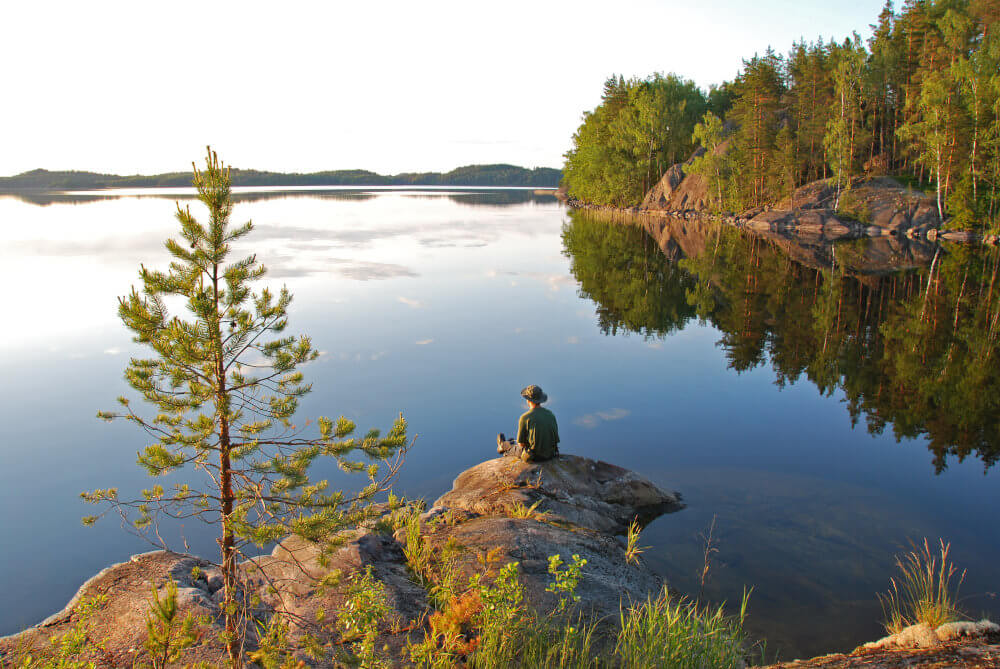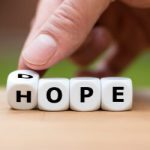The Healing Gift of God’s Creation

Nature consoles our losses and encourages accountability in our relationships.
My oldest brother’s suicide in 1982 was my family’s own private apocalypse. In common parlance, apocalypse suggests an ending but it more accurately means “unveiling.” His death marked a tragic end, but it also uncovered to our view things of utter importance, namely human relationships and our connection with the natural world. We learned that loss has a paradoxical way of renewing. Ever since those days of sadness we have loved each other and nature’s strange and unexpected beauty with greater urgency.
In a different season of mourning, the COVID-19 pandemic has similarly inspired me and countless others to flock to mountain trails, parks, and coastlines just to be reminded that the earth, though damaged, still offers hope. Of course, nature is no escape from our biology. Outdoor experiences instead offer a chance for proper self-reflection and instill awareness of, and accountability for, the vulnerable lives of others. When it reminds us of the sanctity of life and of death, nature brings us to ourselves
Death exposes our condition of shared woundedness but, if we will let it, can lead us into healing relationships of compassion. The killing of George Floyd, for example, sparked an outpouring of fellow feeling among people of all races, perhaps because in this pandemic-induced moment of collective anxiety and vulnerability we have been yearning for more meaningful connection. Normally, much of our culture is grounded in a deep fear of confronting death and suffering. As a result, many of us prefer to do anything—continue polluting nature or looking away from social injustice—to shield ourselves with the illusion of self-sufficiency.
What is especially disconcerting is that this culture of fear can be disguised in the language of faith. In the New Testament, St. Paul famously described the “day of the Lord” as coming “as a thief in the night.” (1 Thessalonians 5:2). Christians have spent too much time using the Second Coming as a reason to judge the world, while missing the point of Paul’s warning: because none of us knows when we will meet our Maker, we are responsible for how we live in the present, each moment, with deeper appreciation and care for the gifts of life.
And what are Paul’s recommendations? Among them are being sober-minded, watchful, being at peace with one another, filled with faith and love, supporting the weak, comforting and edifying ourselves together, rejoicing, praying, and holding fast to that which is good. But instead of inspiring a more meaningful and compassionate life, the dreaded prospect of apocalypse has inspired believers to rationalize injustice and justify environmental degradation. As a result, cold indifference toward life is disguised as trust in divine providence.
“If the earth is going to die anyway,” some fellow Christians have asked me over the years regarding climate change, “then why bother taking care of it?” One might as well say that since we are all going to die, there is no point in worrying about helping fellow sufferers or preventing anyone’s death. Like Voltaire’s satirical philosopher Pangloss, we end up justifying, even welcoming, everything that happens, as if God would wills unspeakable suffering on millions just to give us the opportunity to turn away in indifference. When religious fatalism assumes that God wills all misfortune, it denies our shared vulnerability and our shared responsibility for one another and for this earth. The environmental and social costs are vast.
But when God’s creations bring healing to the broken-hearted and repair human relationships, hope is restored. Nature heals when we see it as a gift, not a reward. Creation is not a thing or a collection of things. It is, as my Latter-day Saint tradition sees it, a community of living souls—human, plant, and animal. To treat human beings and God’s creations as objects to supply our needs is to live in hell. To see the world as an extravagant gift of community that requires our care is to bring heaven closer to earth.
Anyone who bothers to do the accounting will quickly see that we don’t deserve all of our suffering in this life. But we also don’t deserve all of God’s gifts. Loving God’s creations means accepting the extravagance of God’s glory. But it also means accepting the reality, the unpredictability, and seeming unfairness of our death and suffering. The Christian life is a call to courageous moral action, even when we can’t control outcomes or protect ourselves from harm. The good news of the gospel is that pure love and faith do indeed conquer fear, but only if we really face life.
Let us not be offended by reality — let us not buy, build, medicate, consume, and even go under the knife to maintain the appearance of perpetual security and invulnerability to death, decay, and ruin. Let us not run from human lives that are far less secure or immune from suffering than our own. As COVID-19 brings greater stillness and simplicity to our American way of life, let us observe nature breathing again and understand that frantic material acquisition and constant hunger for possessions, pleasures, and distractions stifle our connection with creation.
Jesus taught in the Sermon on the Mount that it is better to be broken, meek, sorrowful, and hungry than it is to feel invulnerable. Jesus himself modeled the strength that comes from weakness. As a Latter-day Saint, I believe what the Book of Mormon additionally teaches, that Christ suffered not just for our sins, but he also suffered and shared the pains, afflictions, sicknesses, and infirmities of all people and of all creation. As I learned from my brother’s death, when I contemplate a Creator who is intimately familiar with the travails of the creation, I find the strength to live with greater compassion and meekness and gratitude. In this season of vulnerability, may the glory and gift of God’s creations become more apparent and may our responsibility to each other grow more urgent and purposeful.
George B. Handley is the Latter-Day Saint scholar and author of the environmental memoir, Home Waters, and more recently of the novel, American Fork, and the collection of essays The Hope of Nature: Our Care for God’s Creation.
This essay is part of a series called “Finding Faith in the Age of Anxiety.” It explores solutions that faith offers in countering the troubles of our time. Perspectives from various religious traditions are represented.



